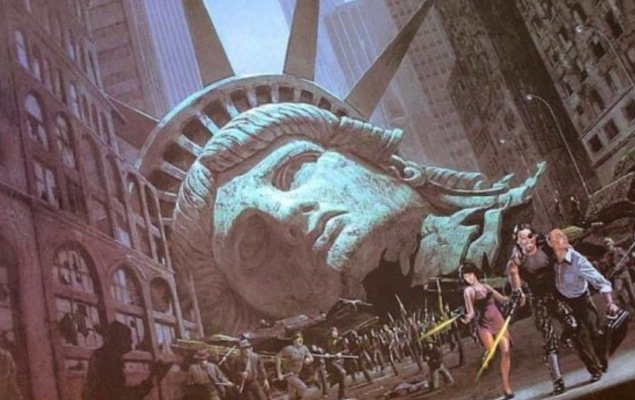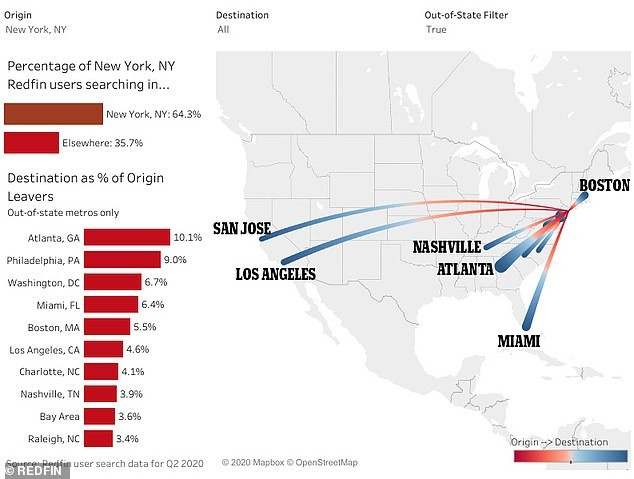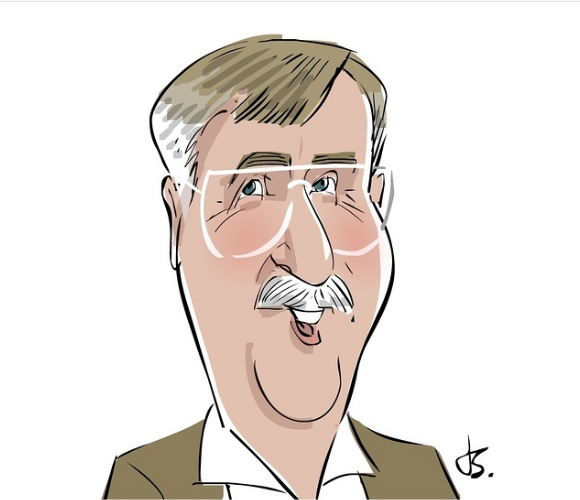What bad Democrat policies began, Covid-19 accelerated, Democrat lockdowns exacerbated, and Democrat-encouraged riots put into high gear: Productive citizens are fleeing the big cities, especially the Democratic Party’s strongholds, and even those who initially meant to return are finding that life is better in the suburbs, or even in rural America.
That headline is a riff off an old Roman saying, “Carthaginium delenda est,” a declaration that Carthage, the mortal enemy of Rome, is (to be) destroyed. What we are facing currently is the total destruction of the raison d’être for cities, especially large cities, and particularly by the management (nearly all Democrat) of those cities.
Once upon a time, when computers were powered by steam and telephones used some combination of clockwork (rotary dial) and wet string (low-quality wires), any kind of work, such as trading, engineering, journalism, banking, insurance, music, and more, required the close proximity of talent, workspaces, and the social life which grew up around that eclectic mix of people. This, and a reasonable degree of law and order, created a virtuous circle that made the cities more desirable as places to live and do business.
Detroit, under a long succession of Democrat mayors, became a poster child for mismanagement, rising crime, and fleeing middle and working-class taxpayers (not just white), after which the city was forced to cut services and raise taxes still further until it was literally stealing homes for inability to pay extortionate water bills.
New York, under Mayor Beame, and to a lesser extent under Ed Koch and David Dinkins, suffered from high crime, falling revenues, and fleeing upper and middle-class taxpayers. By the time internet speeds began to become useful for serious work at home in the mid 90’s, Giuliani had completed the crackdown on crime, and the city had come back to life – who could resist the city that never sleeps if the streets were safe to walk?
This time it’s different. When New York became unsafe in the 70’s and 80’s, there was no reasonable way for collaborative work, or trading which required lightning-fast responses, to be done from a home in the boondocks, but today, and indeed for more than ten years now, internet speeds have made it possible for anybody who does not need specialized machinery to work from anywhere a desk, a computer, and an internet connection can be set up.
The big cities have become increasingly expensive for high earners to live in, and people have been gradually making the choice between living comfortably for less versus crowded and expensive living conditions balanced by a lively social scene. The gradual walking away became a brisk trot with the Covid lockdowns, as anybody who had the option left the cities for quieter and less infected locales, but it became a stampede as the BLM/Antifa riots and looting wiped out large swaths of what made downtown worthwhile.
The big New York banks have discovered that they can function perfectly adequately with the majority of their office staff working remotely – it is quite possible that only senior/essential staff will ever return to their flagship offices, and many of the rest will stay remote. Datacenters and the bulk of their IT staff are mostly outside the city already. The “open outcry” trading floors of the stock and mercantile exchanges have been thinning out for about 12-15 years, and more traders are remote than on-site now.
What about San Francisco and Silicon Valley (San Jose)? Urban disorder and encouragement of homeless encampments were already making the fancy homes near the fancy offices of Facebook, Twitter, Google, etc., less desirable. Then along came Covid-19, and all of them announced highly flexible work-from-home arrangements, where trusted staff could work from home indefinitely, and only essential personnel and newbies in need of mentoring need be at the almost empty offices. Once the social life of the city shut down, many millennials decided to forgo the expensive pied-à-terre and either return to mom’s basement or get a nice little house in the countryside.
With occupancy and rents of both offices and homes plunging in New York, San Francisco, and other business hubs, things are getting bleak in terms of lost tax revenue that may not come back for a long time, if ever.
But wait, there’s more. In nearly every large, Democrat-run city: New York, DC, Baltimore, Chicago, Minneapolis, Seattle, Portland (OR), LA, and more, crime and costs have been going up, and criminals and rioters have been allowed almost free rein – the people and businesses who despair of ever removing Bill De Blasio(NYC), Ted Wheeler(Portland), Jenny Durkan(Seattle), Jacob Frey(Minneapolis), Eric (turn off your AC) Garcetti(LA), Lori Lightfoot(Chicago), Muriel Bowser(DC), and Bernard Young(Baltimore)…… are just packing up and moving out for safer and cheaper climes.
The BBC imagined a post-Covid workplace, where staff who had dispersed did not return to live in the cities but chose to live far outside of them and commute in around one day per week to a radically redesigned office with much more space around each person so that coworkers could interact just often enough to build working relationships. When you can have nicer living conditions for much less money, one long commute per week doesn’t seem too bad. (And by the way, Silicon Valley workers with families already live up to two hours away – most of those are doing just fine without driving to the office)
But I’m not done. Why should offices be in cities at all? We already have office parks near small towns, or along highways, with sufficient staff in easy commuting distance, especially if the offices are only used for 20-40% of the staff at any given time. Smaller cities and larger towns can offer downtown areas with food and entertainment, and the more popular ones will sprout theaters, orchestras, and museums.
What I’m suggesting here is that this year of badly managed cities, disease exacerbated by close proximity and public transport, and easy remote working has ALREADY FORCED a paradigm shift whereby the big cities may simply be anachronisms, relics of the pre-internet age, which we won’t miss sufficiently to move back into them.
Cue the Rush Limbaugh theme music: “My City Was Gone” by Chrissie Hynde (There was no train station; There was no downtown…)
Header image credit “Escape From New York” from Paramount (1981)






